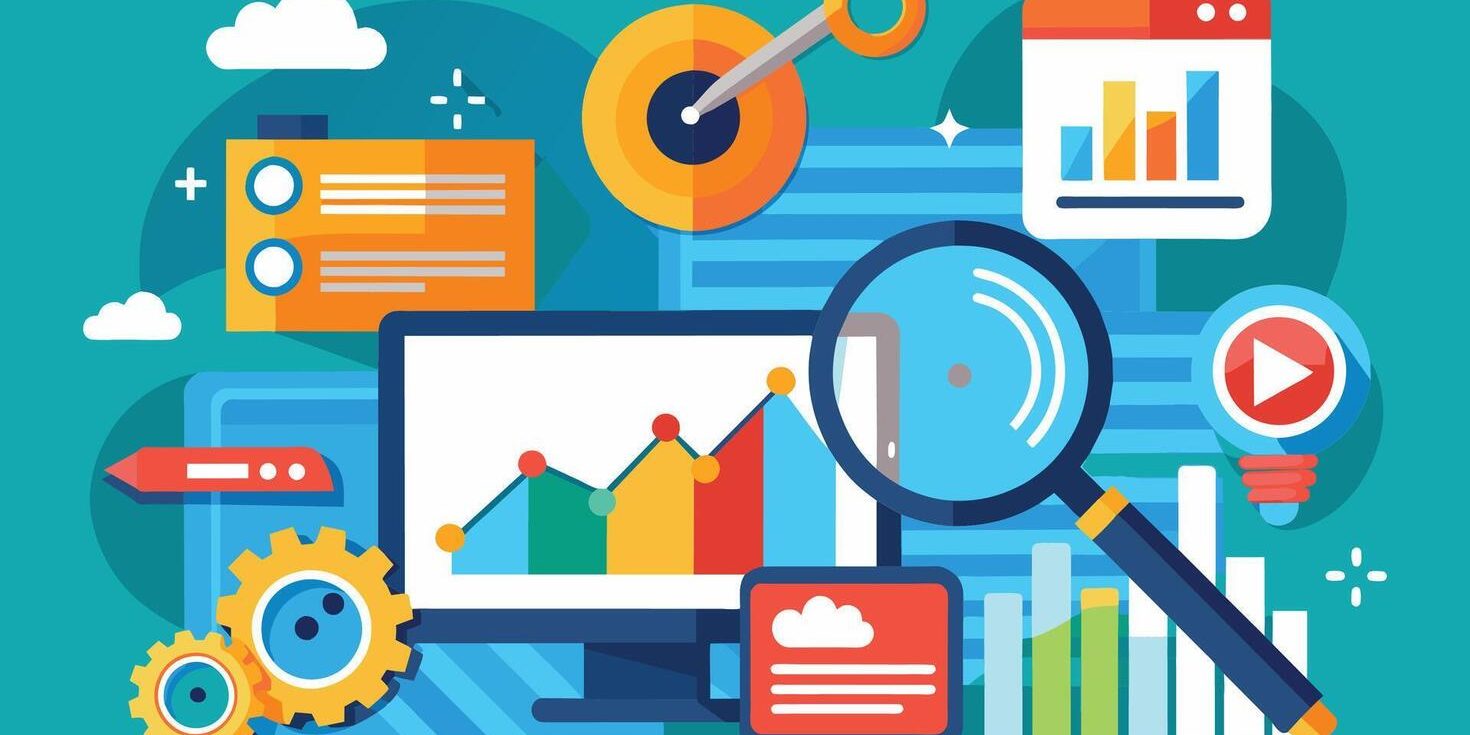
Increases Visibility and Brand Awareness
First and foremost, small business marketing increases visibility and brand awareness. Without marketing, potential customers may not know your business exists. Marketing allows you to reach your target audience and introduce them to your brand, products, or services.
Start by establishing an online presence. A website is essential for any small business in today’s digital age. Search engine optimization (SEO) helps improve your website’s ranking on Google, making it easier for potential customers to find you. When people search for products or services that you offer, having a well-optimized website increases the chances they will land on your page.
Additionally, social media platforms like Facebook, Instagram, and Twitter allow small businesses to engage with their audience and share updates, promotions, and stories. By regularly posting content that resonates with your target audience, you build awareness and create opportunities for potential customers to discover your business.
Moreover, local marketing is key for small businesses that rely on nearby customers. Using tools like Google My Business ensures that people in your area can easily find your company when searching online. Local SEO efforts, combined with online reviews, further boost visibility and credibility, encouraging more foot traffic or website visits.
Drives Sales and Revenue Growth
Effective small business marketing directly impacts sales and revenue growth. By reaching the right customers with tailored messaging, marketing campaigns encourage potential buyers to take action, such as visiting your website, calling your business, or making a purchase.
First, marketing campaigns help create demand for your products or services. Whether you’re running promotions, offering discounts, or launching new products, marketing helps communicate the value of your offerings to customers. The more compelling and targeted your messaging, the more likely customers are to respond positively.
Additionally, digital marketing channels like pay-per-click (PPC) advertising allow businesses to target specific demographics and interests. With tools like Google Ads or Facebook Ads, you can run campaigns that reach people actively searching for products similar to yours. This targeted approach results in higher conversion rates and better return on investment (ROI).
Moreover, email marketing is an effective tool for driving repeat sales and customer engagement. By sending personalized emails with exclusive offers, product recommendations, or event invitations, you encourage customers to come back and make additional purchases. Regular communication with your audience keeps your business top of mind, leading to more frequent sales.
Furthermore, cross-selling and upselling are powerful techniques that can be leveraged through marketing. By offering complementary products or suggesting higher-value items to customers during the purchasing process, you can increase the average order value and boost overall revenue.
Builds Strong Customer Relationships
Small business marketing also plays a crucial role in building strong customer relationships. Unlike large corporations, small businesses often have the advantage of being able to build personal connections with their customers. Effective marketing helps nurture these relationships, leading to greater loyalty and long-term customer retention.
First, content marketing allows small businesses to provide value beyond just selling products. By creating blog posts, videos, and social media content that educates, informs, or entertains your audience, you build trust with potential and existing customers. When people see your business as a helpful resource, they’re more likely to choose you over competitors.
Additionally, social media platforms provide a space for direct interaction with customers. Responding to comments, answering questions, and engaging in conversations helps build a sense of community around your brand. Small businesses that prioritize customer engagement on social media often enjoy higher customer loyalty and positive word-of-mouth referrals.
Moreover, customer feedback is a valuable asset for small businesses, and marketing can be a tool for gathering and responding to it. Encouraging reviews, testimonials, and surveys allows you to understand customer needs better and improve your products or services accordingly. Showing that you listen to and value customer input strengthens relationships and boosts customer satisfaction.
Furthermore, loyalty programs and personalized marketing initiatives can deepen relationships with your best customers. By offering rewards, discounts, or personalized recommendations to repeat buyers, you incentivize them to continue choosing your business. Loyal customers are more likely to refer your business to others, further amplifying your marketing efforts.
Enhances Competitiveness in the Market
Small business marketing helps level the playing field, allowing smaller companies to compete with larger businesses. While big corporations may have more resources, small businesses can use targeted marketing strategies to stand out and gain a competitive edge.
First, small businesses can position themselves as experts in their niche through effective branding and marketing. By highlighting your unique selling points (USPs), such as personalized customer service, locally sourced products, or eco-friendly practices, you differentiate yourself from larger competitors. A strong, authentic brand voice helps attract customers who align with your values.
Additionally, digital marketing enables small businesses to reach a larger audience without the high costs of traditional advertising. Channels like social media, email, and SEO provide cost-effective ways to engage with potential customers. By focusing on specific target audiences and offering personalized experiences, small businesses can outperform larger competitors who may rely on mass marketing.
Moreover, agility is a key advantage for small businesses. While larger companies may be slower to react to market changes or customer preferences, small businesses can quickly adapt their marketing strategies. This agility allows you to capitalize on new trends, seasonal promotions, or customer feedback faster, giving you a competitive advantage.
Furthermore, marketing tools such as A/B testing, analytics, and tracking allow small businesses to refine their campaigns for maximum efficiency. By continuously optimizing your marketing efforts, you ensure that your advertising dollars are spent wisely, providing a higher ROI and better results over time.
Generates Valuable Business Insights
One of the often-overlooked benefits of small business marketing is the wealth of data it provides. Marketing campaigns, especially digital ones, generate valuable insights that can help you make informed business decisions.
First, tracking the performance of your marketing campaigns helps you understand what works and what doesn’t. Tools like Google Analytics, Facebook Insights, and email marketing platforms provide detailed reports on customer behavior, engagement, and conversions. By analyzing this data, you can adjust your strategies to focus on the most effective channels and tactics.
Additionally, marketing data helps you learn more about your customers. By analyzing metrics such as demographics, purchase history, and online behavior, you can create more personalized and targeted campaigns. Understanding your customers better allows you to tailor your messaging, offers, and products to meet their needs.
Moreover, customer feedback collected through marketing efforts, such as surveys or online reviews, gives you insight into how your business is perceived. This feedback can inform product development, customer service improvements, and even pricing strategies.
Furthermore, small business marketing allows you to test new ideas and measure results quickly. Whether you’re launching a new product, offering a promotion, or testing a new advertising channel, marketing provides the data needed to assess performance and make adjustments.
Conclusion
In conclusion, small business marketing offers numerous benefits that help companies grow, build customer relationships, and stay competitive in their industry. By increasing visibility, driving sales, and leveraging data-driven insights, marketing is a critical tool for achieving long-term success. Whether through digital marketing channels like social media and email or local marketing efforts, an effective marketing strategy helps small businesses connect with their target audience and thrive in an ever-evolving market. With the right approach, marketing can transform your small business and unlock new opportunities for growth. That’s how small business marketing benefits companies. Get the facts from industry experts about marketing facts and benefits.








